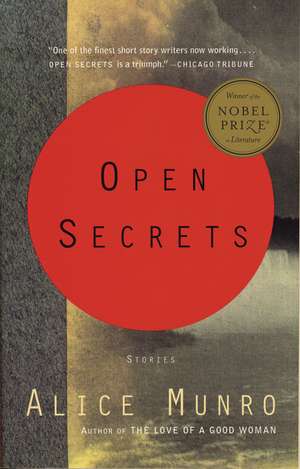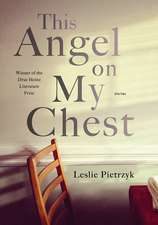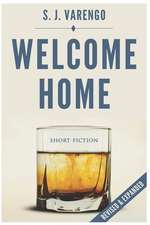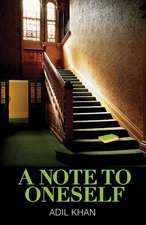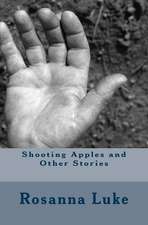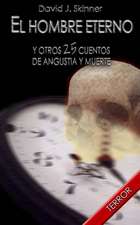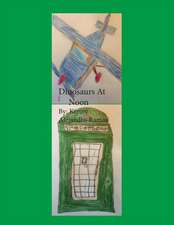Open Secrets: Vintage International
Autor Alice Munroen Limba Engleză Paperback – 31 oct 1995
"Open Secrets is a book that dazzles with its faith in language and in life."--New York Times Book Review
| Toate formatele și edițiile | Preț | Express |
|---|---|---|
| Paperback (2) | 53.71 lei 23-34 zile | +20.22 lei 7-13 zile |
| Vintage Publishing – 9 mar 1995 | 53.71 lei 23-34 zile | +20.22 lei 7-13 zile |
| Vintage Publishing – 31 oct 1995 | 89.20 lei 6-8 săpt. |
Din seria Vintage International
-
 Preț: 97.70 lei
Preț: 97.70 lei -
 Preț: 123.78 lei
Preț: 123.78 lei -
 Preț: 74.80 lei
Preț: 74.80 lei -
 Preț: 71.65 lei
Preț: 71.65 lei -
 Preț: 82.70 lei
Preț: 82.70 lei -
 Preț: 93.48 lei
Preț: 93.48 lei -
 Preț: 94.68 lei
Preț: 94.68 lei -
 Preț: 97.79 lei
Preț: 97.79 lei -
 Preț: 68.16 lei
Preț: 68.16 lei -
 Preț: 77.76 lei
Preț: 77.76 lei -
 Preț: 74.37 lei
Preț: 74.37 lei -
 Preț: 80.27 lei
Preț: 80.27 lei -
 Preț: 88.70 lei
Preț: 88.70 lei -
 Preț: 104.50 lei
Preț: 104.50 lei -
 Preț: 89.42 lei
Preț: 89.42 lei -
 Preț: 97.91 lei
Preț: 97.91 lei -
 Preț: 77.05 lei
Preț: 77.05 lei -
 Preț: 105.48 lei
Preț: 105.48 lei -
 Preț: 84.32 lei
Preț: 84.32 lei -
 Preț: 89.28 lei
Preț: 89.28 lei -
 Preț: 99.84 lei
Preț: 99.84 lei -
 Preț: 69.95 lei
Preț: 69.95 lei -
 Preț: 88.62 lei
Preț: 88.62 lei -
 Preț: 115.34 lei
Preț: 115.34 lei -
 Preț: 68.49 lei
Preț: 68.49 lei -
 Preț: 95.69 lei
Preț: 95.69 lei -
 Preț: 99.13 lei
Preț: 99.13 lei -
 Preț: 96.38 lei
Preț: 96.38 lei -
 Preț: 71.62 lei
Preț: 71.62 lei -
 Preț: 72.10 lei
Preț: 72.10 lei -
 Preț: 102.86 lei
Preț: 102.86 lei -
 Preț: 87.37 lei
Preț: 87.37 lei -
 Preț: 76.03 lei
Preț: 76.03 lei -
 Preț: 131.55 lei
Preț: 131.55 lei -
 Preț: 101.18 lei
Preț: 101.18 lei -
 Preț: 130.68 lei
Preț: 130.68 lei -
 Preț: 93.75 lei
Preț: 93.75 lei -
 Preț: 95.91 lei
Preț: 95.91 lei -
 Preț: 71.72 lei
Preț: 71.72 lei -
 Preț: 107.31 lei
Preț: 107.31 lei -
 Preț: 74.47 lei
Preț: 74.47 lei -
 Preț: 116.92 lei
Preț: 116.92 lei -
 Preț: 74.47 lei
Preț: 74.47 lei -
 Preț: 103.49 lei
Preț: 103.49 lei -
 Preț: 82.61 lei
Preț: 82.61 lei -
 Preț: 71.25 lei
Preț: 71.25 lei -
 Preț: 117.81 lei
Preț: 117.81 lei -
 Preț: 68.66 lei
Preț: 68.66 lei -
 Preț: 98.14 lei
Preț: 98.14 lei -
 Preț: 64.61 lei
Preț: 64.61 lei
Preț: 89.20 lei
Nou
Puncte Express: 134
Preț estimativ în valută:
17.08€ • 17.75$ • 14.16£
17.08€ • 17.75$ • 14.16£
Carte tipărită la comandă
Livrare economică 05-19 februarie 25
Preluare comenzi: 021 569.72.76
Specificații
ISBN-13: 9780679755623
ISBN-10: 0679755624
Pagini: 304
Dimensiuni: 124 x 213 x 16 mm
Greutate: 0.22 kg
Editura: Vintage Publishing
Colecția Vintage Books
Seria Vintage International
ISBN-10: 0679755624
Pagini: 304
Dimensiuni: 124 x 213 x 16 mm
Greutate: 0.22 kg
Editura: Vintage Publishing
Colecția Vintage Books
Seria Vintage International
Recenzii
“She is our Chekhov, and is going to outlast most of her contemporaries.”
–Cynthia Ozick
“Brilliant at evoking life’s diversity and unpredictability, [Alice Munro is] an unrivalled chronicler of human nature.”
–The Sunday Times
“An Alice Munro story zooms effortlessly through time zones, spans generations and offers up more detail and description than do many full-length contemporary novels.”
–Maclean’s
“She is the best fiction writer in North America.”
–The Vancouver Sun
From the Hardcover edition.
–Cynthia Ozick
“Brilliant at evoking life’s diversity and unpredictability, [Alice Munro is] an unrivalled chronicler of human nature.”
–The Sunday Times
“An Alice Munro story zooms effortlessly through time zones, spans generations and offers up more detail and description than do many full-length contemporary novels.”
–Maclean’s
“She is the best fiction writer in North America.”
–The Vancouver Sun
From the Hardcover edition.
Notă biografică
Alice Munro grew up in Wingham, Ontario, and attended the University of Western Ontario. She has published eleven new collections of stories-Dance of the Happy Shades; Something I've Been Meaning to Tell You; The Beggar Maid; The Moons of Jupiter; The Progress of Love; Friend of My Youth; Open Secrets; The Love of a Good Woman; Hateship, Friendship, Courtship, Loveship, Marriage; Runaway; and a volume of Selected Stories-as well as a novel, Lives of Girls and Women. During her distinguished career she has been the recipient of many awards and prizes, including the Man Booker International Prize, three of Canada's Governor General's Literary Awards and two of its Giller Prizes, the Rea Award for the Short Story, the Lannan Literary Award, England's W. H. Smith Book Award, the United States' National Book Critics Circle Award, and the Edward MacDowell Medal in literature. Her stories have appeared in The New Yorker, The Atlantic Monthly, The Paris Review, and other publications, and her collections have been translated into thirteen languages.
Alice Munro divides her time between Clinton, Ontario, near Lake Huron, and Comox, British Columbia.
Alice Munro divides her time between Clinton, Ontario, near Lake Huron, and Comox, British Columbia.
Extras
Carried Away
LETTERS
In the dining room of the Commercial Hotel, Louisa opened the letter that had arrived that day from overseas. She ate steak and potatoes, her usual meal, and drank a glass of wine. There were a few travellers in the room, and the dentist who ate there every night because he was a widower. He had shown an interest in her in the beginning but had told her he had never before seen a woman touch wine or spirits.
"It is for my health," said Louisa gravely.
The white tablecloths were changed every week and in the meantime were protected by oilcloth mats. In winter, the dining room smelled of these mats wiped by a kitchen rag, and of coal fumes from the furnace, and beef gravy and dried potatoes and onions-a smell not unpleasant to anybody coming in hungry from the cold. On each table was a little cruet stand with the bottle of brown sauce, the bottle of tomato sauce, and the pot of horseradish.
The letter was addressed to "The Librarian, Carstairs Public Library, Carstairs, Ontario." It was dated six weeks before-January 4, 1917.
Perhaps you will be surprised to hear from a person you don't know and that doesn't remember your name. I hope you are still the same Librarian though enough time has gone by that you could have moved on.
What has landed me here in Hospital is not too serious. I see worse all around me and get my mind off of all that by picturing things and wondering for instance if you are still there in the Library. If you are the one I mean, you are about of medium size or perhaps not quite, with light brownish hair. You came a few months before it was time for me to go in the Army following on Miss Tamblyn who had been there since I first became a user aged nine or ten. In her time the books were pretty much every which way, and it was as much as your life was worth to ask her for the least help or anything since she was quite a dragon. Then when you came what a change, it was all put into sections of Fiction and Non-Fiction and History and Travel and you got the magazines arranged in order and put out as soon as they arrived, not left to molder away till everything in them was state. I felt gratitude but did not know how to say so. Also I wondered what brought you there, you were an educated person.
My name is Jack Agnew and my card is in the drawer. The last book I took out was very good-H. G. Wells, Mankind in the Making. My education was to Second Form in High School, then I went into Douds as many did. I didn't Join up right away when I was eighteen so you will not see me as a Brave Man. I am a person tending to have my own ideas always. My only relative in Carstairs, or anyplace, is my father Patrick Agnew. He works for Douds not at the factory but at the house doing the gardening. He is a lone wolf even more than me and goes out to the country fishing every chance he gets. I write him a letter sometimes but I doubt if he reads it.
After supper Louisa went up to the Ladies' Parlor on the second floor, and sat down at the desk to write her reply.
I am very glad to hear you appreciated what I did in the Library though it was just the normal organization, nothing special.
I am sure you would like to hear news of home, but I am a poor person for the job, being an outsider here. I do talk to people in the Library and in the hotel. The travellers in the hotel mostly talk about how business is (it is brisk if you can get the goods) and a little about sickness, and a lot about the War. There are rumors on rumors and opinions galore, which I'm sure would make you laugh if they didn't make you angry. I will not bother to write them down because I am sure there is a Censor reading this who would cut my letter to ribbons.
You ask how I came here. There is no interesting story. My parents are both dead. My father worked for Eaton's in Toronto in the Furniture Department, and after his death my mother worked there too in Linens. And I also worked there for a while in Books. Perhaps you could say Eaton's was our Douds. I graduated from Jarvis Collegiate. I had some sickness which put me in hospital for a long time, but I am quite well now. I had a great deal of time to read and my favorite authors are Thomas Hardy, who is accused of being gloomy but I think is very true to life-and Willa Cather. I just happened to be in this town when I heard the Librarian had died and I thought, perhaps that is the job for me.
A good thing your letter reached me today as I am about to be discharged from here and don't know if it would have been sent on to where I am going. I am glad you did not think my letter was too foolish.
If you run into my father or anybody you do not need to say anything about the fact we are writing to each other. It is nobody's business and I know there are plenty of people would laugh at me writing to the Librarian as they did at me going to the Library even, why give them the satisfaction?
I am glad to be getting out of here. So much luckier than some I see that will never walk or have their sight and will have to hide themselves away from the world.
You asked where did I live in Carstairs. Well, it was not anyplace to be proud of. If you know where Vinegar Hill is and you turned off on Flowers Road it is the last house on the right, yellow paint once upon a time. My father grows potatoes, or did. I used to take them around town with my wagon, and every load I sold got a nickel to keep.
You mention favorite authors. At one time I was fond of Zane Grey, but I drifted away from reading fiction stories to reading History or Travel. I sometimes read books away over my head, I know, but I do get something out of them. H. G. Wells I mentioned is one and Robert Ingersoll who writes about religion. They have given me a lot to think about. If you are very religious I hope I have not offended you.
One day when I got to the Library it was a Saturday afternoon and you had just unlocked the door and were putting the lights on as it was dark and raining out. You had been caught out with no hat or umbrella and your hair had got wet. You took the pins out of it and let it come down. Is it too personal a thing to ask if you have it long still or have you cut it? You went over and stood by the radiator and shook your hair on it and the water sizzled like grease in the frying pan. I was sitting reading in the London Illustrated News about the War. We exchanged a smile. (I didn't mean to say your hair was greasy when I wrote that!)
I have not cut my hair though I often think about it. I do not know if it is vanity or laziness that prevents me.
I am not very religious.
I walked up Vinegar Hill and found your house. The potatoes are looking healthy. A police dog disputed with me, is he yours?
The weather is getting quite warm. We have had the flood on the river, which I gather is an annual Spring event. The water got into the hotel basement and somehow contaminated our drinking supply so that we were given free beer or ginger ale. But only if we lived or were staying there. You can imagine there were plenty of jokes.
I should ask if there is anything that I could send you.
I am not in need of anything particular. I get the tobacco and other bits of things the ladies in Carstairs do up for us. I would like to read some books by the authors you have mentioned but I doubt whether I would get the chance here.
The other day there was a man died of a heart attack. It was the News of all time. Did you hear about the man who died of a heart attack? That was all you heard about day and night here. Then everybody would laugh which seems hard-hearted but it just seemed so strange. It was not even a hot time so you couldn't say maybe he was scared. (As a matter of fact he was writing a letter at the time so I had better look out.) Before and after him others have died being shot up or blown up but he is the famous one, to die of a heart attack. Everybody is saying what a long way to come and a lot of expense for the Army to go to, for that.
The summer has been so dry the watering tank has been doing the streets every day, trying to lay the dust. The children would dance along behind it. There was also a new thing in town-a cart with a little bell that went along selling ice cream, and the children were pretty attentive to this as well. It was pushed by the man who had an accident at the factory-you know who I mean, though I can't recall his name. He lost his arm to the elbow. My room at the hotel, being on the third floor, it was like an oven, and I often walked about till after midnight. So did many other people, sometimes in pajamas. It was like a dream. There was still a little water in the river, enough to go out in a rowboat, and the Methodist minister did that on a Sunday in August. He was praying for rain in a public service. But there was a small leak in the boat and the water came in and wet his feet and eventually the boat sank and left him standing in the water, which did not nearly reach his waist. Was it an accident or a malicious trick? The talk was all that his prayers were answered but from the wrong direction.
I often pass the Douds' place on my walks. Your father keeps the lawns and hedges looking beautiful. I like the house, so original and airy-looking. But it may not have been cool even there, because I heard the voice of the mother and baby daughter late at night as if they were out on the lawn.
Though I told you there is nothing I need, there is one thing I would like. That is a photograph of you. I hope you will not think I am overstepping the bounds to ask for it. Maybe you are engaged to somebody or have a sweetheart over here you are writing to as well as me. You are a cut above the ordinary and it would not surprise me if some Officer had spoken for you. But now that I have asked I cannot take it back and will just leave it up to you to think what you like of me.
Louisa was twenty-five years old and had been in love once, with a doctor she had known in the sanitorium. Her love was returned, eventually, costing the doctor his job. There was some harsh doubt in her mind about whether he had been told to leave the sanitorium or had left of his own accord, being weary of the entanglement. He was married, he had children. Letters had played a part that time, too. After he left, they were still writing to one another. And once or twice after she was released. Then she asked him not to write anymore and he didn't. But the failure of his letters to arrive drove her out of Toronto and made her take the travelling job. Then there would be only the one disappointment in the week, when she got back on Friday or Saturday night. Her last letter had been firm and stoical, and some consciousness of herself as a heroine of love's tragedy went with her around the country as she hauled her display cases up and down the stairs of small hotels and talked about Paris styles and said that her sample hats were bewitching, and drank her solitary glass of wine. If she'd had anybody to tell, though, she would have laughed at just that notion. She would have said love was all hocus-pocus, a deception, and she believed that. But at the prospect she still felt a hush, a flutter along the nerves, a bowing down of sense, a flagrant prostration. She had a picture taken. She knew how she wanted it to be. She would have liked to wear a simple white blouse, a peasant girl's smock with the string open at the neck. She did not own a blouse of that description and in fact had only seen them in pictures. And she would have liked to let her hair down. Or if it had to be up, she would have liked it piled very loosely and bound with strings of pearls.
Instead she wore her blue silk shirt-waist and bound her hair as usual. She thought the picture made her look rather pale, hollow-eyed. Her expression was sterner and more foreboding than she had intended. She sent it anyway.
I am not engaged, and do not have a sweetheart. I was in love once and it had to be broken off. I was upset at the time but I knew I must bear it, and now I believe that it was all for the best.
She had wracked her brains, of course, to remember him. She could not remember shaking out her hair, as he said she had done, or smiling at any young man when the raindrops fell on the radiator. He might as well have dreamed all that, and perhaps he had.
She had begun to follow the war in a more detailed way than she had done previously. She did not try to ignore it anymore. She went along the street with a sense that her head was filled with the same exciting and troubling information as everybody else's. Saint-Quentin, Arras, Montdidier, Amiens, and then there was a battle going on at the Somme River, where surely there had been one before? She laid open on her desk the maps of the war that appeared as double-page spreads in the magazines. She saw in colored lines the German drive to the Marne, the first thrust of the Americans at Ch?teau-Thierry. She looked at the artist's brown pictures of a horse rearing up during an air attack, of some soldiers in East Africa drinking out of coconuts, and of a line of German prisoners with bandaged heads or limbs and bleak, sullen expressions. Now she felt what everybody else did-a constant fear and misgiving and at the same time this addictive excitement. You could look up from your life of the moment and feel the world crackling beyond the walls.
LETTERS
In the dining room of the Commercial Hotel, Louisa opened the letter that had arrived that day from overseas. She ate steak and potatoes, her usual meal, and drank a glass of wine. There were a few travellers in the room, and the dentist who ate there every night because he was a widower. He had shown an interest in her in the beginning but had told her he had never before seen a woman touch wine or spirits.
"It is for my health," said Louisa gravely.
The white tablecloths were changed every week and in the meantime were protected by oilcloth mats. In winter, the dining room smelled of these mats wiped by a kitchen rag, and of coal fumes from the furnace, and beef gravy and dried potatoes and onions-a smell not unpleasant to anybody coming in hungry from the cold. On each table was a little cruet stand with the bottle of brown sauce, the bottle of tomato sauce, and the pot of horseradish.
The letter was addressed to "The Librarian, Carstairs Public Library, Carstairs, Ontario." It was dated six weeks before-January 4, 1917.
Perhaps you will be surprised to hear from a person you don't know and that doesn't remember your name. I hope you are still the same Librarian though enough time has gone by that you could have moved on.
What has landed me here in Hospital is not too serious. I see worse all around me and get my mind off of all that by picturing things and wondering for instance if you are still there in the Library. If you are the one I mean, you are about of medium size or perhaps not quite, with light brownish hair. You came a few months before it was time for me to go in the Army following on Miss Tamblyn who had been there since I first became a user aged nine or ten. In her time the books were pretty much every which way, and it was as much as your life was worth to ask her for the least help or anything since she was quite a dragon. Then when you came what a change, it was all put into sections of Fiction and Non-Fiction and History and Travel and you got the magazines arranged in order and put out as soon as they arrived, not left to molder away till everything in them was state. I felt gratitude but did not know how to say so. Also I wondered what brought you there, you were an educated person.
My name is Jack Agnew and my card is in the drawer. The last book I took out was very good-H. G. Wells, Mankind in the Making. My education was to Second Form in High School, then I went into Douds as many did. I didn't Join up right away when I was eighteen so you will not see me as a Brave Man. I am a person tending to have my own ideas always. My only relative in Carstairs, or anyplace, is my father Patrick Agnew. He works for Douds not at the factory but at the house doing the gardening. He is a lone wolf even more than me and goes out to the country fishing every chance he gets. I write him a letter sometimes but I doubt if he reads it.
After supper Louisa went up to the Ladies' Parlor on the second floor, and sat down at the desk to write her reply.
I am very glad to hear you appreciated what I did in the Library though it was just the normal organization, nothing special.
I am sure you would like to hear news of home, but I am a poor person for the job, being an outsider here. I do talk to people in the Library and in the hotel. The travellers in the hotel mostly talk about how business is (it is brisk if you can get the goods) and a little about sickness, and a lot about the War. There are rumors on rumors and opinions galore, which I'm sure would make you laugh if they didn't make you angry. I will not bother to write them down because I am sure there is a Censor reading this who would cut my letter to ribbons.
You ask how I came here. There is no interesting story. My parents are both dead. My father worked for Eaton's in Toronto in the Furniture Department, and after his death my mother worked there too in Linens. And I also worked there for a while in Books. Perhaps you could say Eaton's was our Douds. I graduated from Jarvis Collegiate. I had some sickness which put me in hospital for a long time, but I am quite well now. I had a great deal of time to read and my favorite authors are Thomas Hardy, who is accused of being gloomy but I think is very true to life-and Willa Cather. I just happened to be in this town when I heard the Librarian had died and I thought, perhaps that is the job for me.
A good thing your letter reached me today as I am about to be discharged from here and don't know if it would have been sent on to where I am going. I am glad you did not think my letter was too foolish.
If you run into my father or anybody you do not need to say anything about the fact we are writing to each other. It is nobody's business and I know there are plenty of people would laugh at me writing to the Librarian as they did at me going to the Library even, why give them the satisfaction?
I am glad to be getting out of here. So much luckier than some I see that will never walk or have their sight and will have to hide themselves away from the world.
You asked where did I live in Carstairs. Well, it was not anyplace to be proud of. If you know where Vinegar Hill is and you turned off on Flowers Road it is the last house on the right, yellow paint once upon a time. My father grows potatoes, or did. I used to take them around town with my wagon, and every load I sold got a nickel to keep.
You mention favorite authors. At one time I was fond of Zane Grey, but I drifted away from reading fiction stories to reading History or Travel. I sometimes read books away over my head, I know, but I do get something out of them. H. G. Wells I mentioned is one and Robert Ingersoll who writes about religion. They have given me a lot to think about. If you are very religious I hope I have not offended you.
One day when I got to the Library it was a Saturday afternoon and you had just unlocked the door and were putting the lights on as it was dark and raining out. You had been caught out with no hat or umbrella and your hair had got wet. You took the pins out of it and let it come down. Is it too personal a thing to ask if you have it long still or have you cut it? You went over and stood by the radiator and shook your hair on it and the water sizzled like grease in the frying pan. I was sitting reading in the London Illustrated News about the War. We exchanged a smile. (I didn't mean to say your hair was greasy when I wrote that!)
I have not cut my hair though I often think about it. I do not know if it is vanity or laziness that prevents me.
I am not very religious.
I walked up Vinegar Hill and found your house. The potatoes are looking healthy. A police dog disputed with me, is he yours?
The weather is getting quite warm. We have had the flood on the river, which I gather is an annual Spring event. The water got into the hotel basement and somehow contaminated our drinking supply so that we were given free beer or ginger ale. But only if we lived or were staying there. You can imagine there were plenty of jokes.
I should ask if there is anything that I could send you.
I am not in need of anything particular. I get the tobacco and other bits of things the ladies in Carstairs do up for us. I would like to read some books by the authors you have mentioned but I doubt whether I would get the chance here.
The other day there was a man died of a heart attack. It was the News of all time. Did you hear about the man who died of a heart attack? That was all you heard about day and night here. Then everybody would laugh which seems hard-hearted but it just seemed so strange. It was not even a hot time so you couldn't say maybe he was scared. (As a matter of fact he was writing a letter at the time so I had better look out.) Before and after him others have died being shot up or blown up but he is the famous one, to die of a heart attack. Everybody is saying what a long way to come and a lot of expense for the Army to go to, for that.
The summer has been so dry the watering tank has been doing the streets every day, trying to lay the dust. The children would dance along behind it. There was also a new thing in town-a cart with a little bell that went along selling ice cream, and the children were pretty attentive to this as well. It was pushed by the man who had an accident at the factory-you know who I mean, though I can't recall his name. He lost his arm to the elbow. My room at the hotel, being on the third floor, it was like an oven, and I often walked about till after midnight. So did many other people, sometimes in pajamas. It was like a dream. There was still a little water in the river, enough to go out in a rowboat, and the Methodist minister did that on a Sunday in August. He was praying for rain in a public service. But there was a small leak in the boat and the water came in and wet his feet and eventually the boat sank and left him standing in the water, which did not nearly reach his waist. Was it an accident or a malicious trick? The talk was all that his prayers were answered but from the wrong direction.
I often pass the Douds' place on my walks. Your father keeps the lawns and hedges looking beautiful. I like the house, so original and airy-looking. But it may not have been cool even there, because I heard the voice of the mother and baby daughter late at night as if they were out on the lawn.
Though I told you there is nothing I need, there is one thing I would like. That is a photograph of you. I hope you will not think I am overstepping the bounds to ask for it. Maybe you are engaged to somebody or have a sweetheart over here you are writing to as well as me. You are a cut above the ordinary and it would not surprise me if some Officer had spoken for you. But now that I have asked I cannot take it back and will just leave it up to you to think what you like of me.
Louisa was twenty-five years old and had been in love once, with a doctor she had known in the sanitorium. Her love was returned, eventually, costing the doctor his job. There was some harsh doubt in her mind about whether he had been told to leave the sanitorium or had left of his own accord, being weary of the entanglement. He was married, he had children. Letters had played a part that time, too. After he left, they were still writing to one another. And once or twice after she was released. Then she asked him not to write anymore and he didn't. But the failure of his letters to arrive drove her out of Toronto and made her take the travelling job. Then there would be only the one disappointment in the week, when she got back on Friday or Saturday night. Her last letter had been firm and stoical, and some consciousness of herself as a heroine of love's tragedy went with her around the country as she hauled her display cases up and down the stairs of small hotels and talked about Paris styles and said that her sample hats were bewitching, and drank her solitary glass of wine. If she'd had anybody to tell, though, she would have laughed at just that notion. She would have said love was all hocus-pocus, a deception, and she believed that. But at the prospect she still felt a hush, a flutter along the nerves, a bowing down of sense, a flagrant prostration. She had a picture taken. She knew how she wanted it to be. She would have liked to wear a simple white blouse, a peasant girl's smock with the string open at the neck. She did not own a blouse of that description and in fact had only seen them in pictures. And she would have liked to let her hair down. Or if it had to be up, she would have liked it piled very loosely and bound with strings of pearls.
Instead she wore her blue silk shirt-waist and bound her hair as usual. She thought the picture made her look rather pale, hollow-eyed. Her expression was sterner and more foreboding than she had intended. She sent it anyway.
I am not engaged, and do not have a sweetheart. I was in love once and it had to be broken off. I was upset at the time but I knew I must bear it, and now I believe that it was all for the best.
She had wracked her brains, of course, to remember him. She could not remember shaking out her hair, as he said she had done, or smiling at any young man when the raindrops fell on the radiator. He might as well have dreamed all that, and perhaps he had.
She had begun to follow the war in a more detailed way than she had done previously. She did not try to ignore it anymore. She went along the street with a sense that her head was filled with the same exciting and troubling information as everybody else's. Saint-Quentin, Arras, Montdidier, Amiens, and then there was a battle going on at the Somme River, where surely there had been one before? She laid open on her desk the maps of the war that appeared as double-page spreads in the magazines. She saw in colored lines the German drive to the Marne, the first thrust of the Americans at Ch?teau-Thierry. She looked at the artist's brown pictures of a horse rearing up during an air attack, of some soldiers in East Africa drinking out of coconuts, and of a line of German prisoners with bandaged heads or limbs and bleak, sullen expressions. Now she felt what everybody else did-a constant fear and misgiving and at the same time this addictive excitement. You could look up from your life of the moment and feel the world crackling beyond the walls.
Descriere
In her latest collection of stories, Munro evokes the devastating power of old love suddenly recollected, in tales that resonate with sorrow, humor, and wisdom, and confirm her reputation as a living master of the genre. "Dazzles with its faith in language and in life".--New York Times Book Review.
